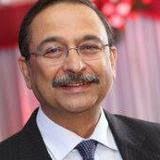Wikipedia defines democracy as "a form of government in which all eligible citizens have an equal say in the decisions that affect their lives. Democracy allows eligible citizens to participate equally—either directly or through elected representatives—in the proposal, development, and creation of laws. It encompasses social, economic and cultural conditions that enable the free and equal practice of political self-determination."
Many countries that follow a democratic form of government feel that they are innately superior to more autocratic or totalitarian regimes. India is no exception. Indians are inordinately proud of their colourful, noisy, pluralistic and generally chaotic democracy.
The fact is that in reality, most Indians live in systems that are anything but democratic.
At birth, Indians step into their place into the 'Indian Family'. This is hardly democratic! There is either a stern, old fashioned father who is a terror and a domestic despot or a mother whose word is law. The child's first exposure to the world is to an autocratic system which has strict rules of precedence, respect and obedience.
At around 5 or 6 years of age he enters school. Again a totalitarian state to say the least! The Principal is God incarnate and the teachers enforce discipline with an iron hand. The class prefect or monitor represents authority that cannot be transgressed. He has to conform to the rules and has very little control over his own destiny. A far cry from democracy!
After school there is a faint glimmer of hope. He goes to college where discipline and enforcement are relatively lax. Here is is first chance to 'rebel' and to look for opportunities where he can express himself. Unfortunately the respite is all to short.
Within a few years, he takes up a job. Whether it is in the Public Sector, Private Sector or even the Government, there is a strict hierarchical system. Rules of procedure, convention and deference to one's seniors have to be followed diligently. Deviation is frowned upon. Again the environment is hardly democratic.
Given this structure, it is perhaps surprising that there is such a maudlin longing for democracy in public affairs. In reality, elections and the will of the people are just a means to the end. Politicians, power brokers and others in the murky world of public governance use democracy only as a cover. Vote banks are bought and sold and the final structure that emerges is just as autocratic and centrally driven as any totalitarian regime.
The fact is that Indians are uncomfortable with true democracy. We have not lived in democratic structures and it is unlikely that a cleansing of the political system will happen anytime soon. We are searching for a 'strong' leader - is that merely a euphemism for an authoritarian set up?
Many countries that follow a democratic form of government feel that they are innately superior to more autocratic or totalitarian regimes. India is no exception. Indians are inordinately proud of their colourful, noisy, pluralistic and generally chaotic democracy.
The fact is that in reality, most Indians live in systems that are anything but democratic.
At birth, Indians step into their place into the 'Indian Family'. This is hardly democratic! There is either a stern, old fashioned father who is a terror and a domestic despot or a mother whose word is law. The child's first exposure to the world is to an autocratic system which has strict rules of precedence, respect and obedience.
At around 5 or 6 years of age he enters school. Again a totalitarian state to say the least! The Principal is God incarnate and the teachers enforce discipline with an iron hand. The class prefect or monitor represents authority that cannot be transgressed. He has to conform to the rules and has very little control over his own destiny. A far cry from democracy!
After school there is a faint glimmer of hope. He goes to college where discipline and enforcement are relatively lax. Here is is first chance to 'rebel' and to look for opportunities where he can express himself. Unfortunately the respite is all to short.
Within a few years, he takes up a job. Whether it is in the Public Sector, Private Sector or even the Government, there is a strict hierarchical system. Rules of procedure, convention and deference to one's seniors have to be followed diligently. Deviation is frowned upon. Again the environment is hardly democratic.
Given this structure, it is perhaps surprising that there is such a maudlin longing for democracy in public affairs. In reality, elections and the will of the people are just a means to the end. Politicians, power brokers and others in the murky world of public governance use democracy only as a cover. Vote banks are bought and sold and the final structure that emerges is just as autocratic and centrally driven as any totalitarian regime.
The fact is that Indians are uncomfortable with true democracy. We have not lived in democratic structures and it is unlikely that a cleansing of the political system will happen anytime soon. We are searching for a 'strong' leader - is that merely a euphemism for an authoritarian set up?
